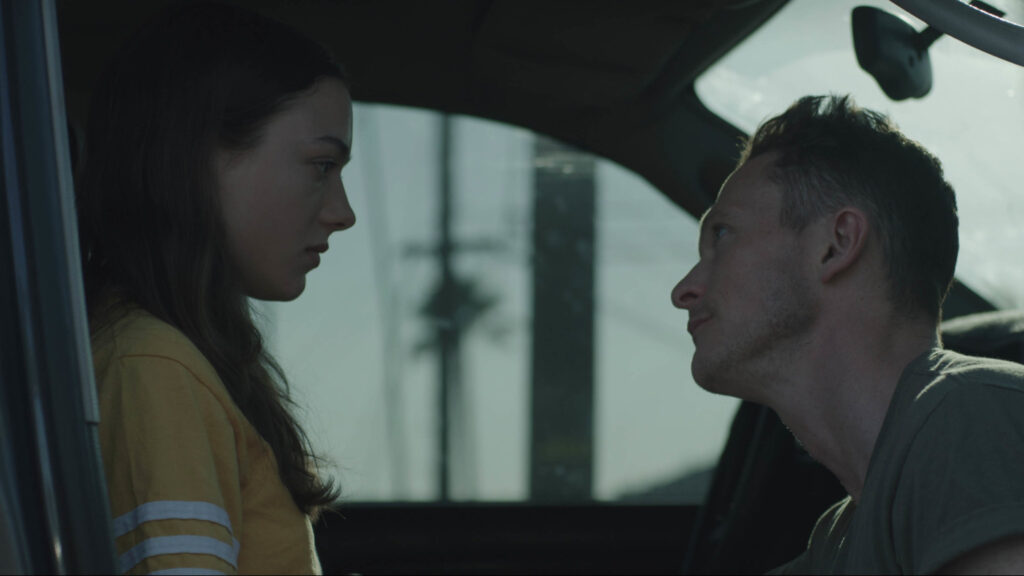Sundance Review: Palm Trees and Power Lines
Written by Ian Thomas Malone, Posted in Blog, Movie Reviews, Pop Culture
It can be really easy to look at a toxic relationship, one of your own or maybe a friend’s, in hindsight and wonder how the hell any of that mess came to exist in the first place. The world is full of manipulative men with keen understandings of the mechanics of grooming. The film Palm Trees and Power Lines takes its audience on a step-by-step journey through these ugly, all-too-common scenarios.
Lea (Lily McInerny) is a quiet seventeen-year-old living in a boring coastal town in Southern California. The weather is great, leaving tanning and swimming as the sole bits of respite from the anxieties that often define one’s teenage years. Lea’s friend group is pretty unspectacular, especially the boys, who can’t even make it through a diner meal without reminding the world of their glaring immaturity.
One night, after being stuck with the diner tab after the boys ran out, Lea meets Tom (Jonathan Tucker), who offers her a ride home. Despite being double her age, Tom takes an interest in Lea, a courtship full of predictable red flags. The inherent creepiness of the situation never quite disappears from the screen, but Tom is charming enough to kind of set himself apart in a town with literally nothing else to offer.
Director Jamie Dack focuses her narrative on the banality of evil. Tom is a quiet sort of monster, a kind face that masks a graduate degree in gaslighting. Tucker pours his heart and soul into the role, keeping an undercurrent of tension flowing through Dack’s glacier-paced film.
Making her feature film debut, McInerny delivers a powerfully reserved performance that’s absolutely perfect for the narrative. Lea is an extremely frustrating character, full of bad decisions that make you want to yell at the TV, yet McInerny always sells the inherent plausibility of this train wreck of a relationship.
Dack seems to have set out with the singular goal of answering the age-old questions that always seem to pop up after these disasters unfold. “How could you not have known?” The 110-minute runtime uses practically every second to take the audience step-by-step into precisely how someone falls under the spell of an absolute monster.
Painfully effective in its messaging, Dack undercuts her feature with a bloated runtime that diminishes her leads’ incredible performances. Palm Trees and Power Lines accomplishes its goals in a way that eludes most features that set out to educate rather than entertain. It is a tremendous piece of filmmaking that would land a let better with twenty minutes shaved off its second half. Dack never quite knows when she’s already achieved her points.
In many ways, Palm Trees and Power Lines dares to be hated. Lea receives almost no character development, a dynamic hardly helped by a half-baked subplot involving her mother (Gretchen Mol). The narrative doesn’t exactly need to work hard to sell its seventeen-year-old grooming victim to the audience, but Dack’s feature is also a bit too bare-bones for its length, growing tedious when it should be moving.
Dack’s work finds itself belonging to the category of moving films you’d never want to watch a second time. The flawed execution can make it pretty hard to watch a first as well, but McInerny and Tucker find ample opportunities to reward the audience’s patience. Dack has such a firm grasp on her intentions, an impressive piece of filmmaking. Palm Trees and Power Lines won’t be for everyone, but the arduous journey does come with its payoffs.











